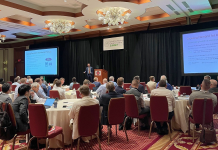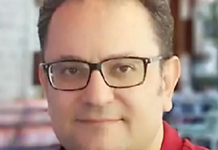
Tenova is partnering with RINA, a multinational engineering consultancy, inspection, and certification company, on the ambitious European Commission-backed Hydra project.
Tenova is a leading developer and provider of sustainable solutions for the green transition of the metals industry.
The 88-million-euro project is funded by the European Commission’s NextGenerationEU and backed by the Italian Ministry of Enterprises and Made in Italy. It aims to drive 100 percent hydrogen-fueled steel production and allow all steelmakers to test it, using the results to drive future investment plans toward sustainable production of steel.
Recognized for its expertise in innovative green technologies that facilitate the decarbonization of the steel sector, Tenova has been contracted to supply a 30m tall Direct Reduction Iron ore (DRI) tower which will use hydrogen as a reducing agent, and an electric arc furnace (EAF). The DRI plant, based on the cutting-edge ENERGIRON® Direct Reduction technology, jointly developed by Tenova and Danieli, together with the Tenova EAF will produce up to seven tons per hour at its full production capability within 2025.
Thanks to this pilot mini mill, European steelmakers will therefore have the opportunity to test steel production with several different combinations: the DRI plant can use different percentages of natural gases and hydrogen as well as process a wide range of iron ores that will be tested in Tenova EAF providing thus concrete results and analysis for future investment and applications. In addition, plastics or other waste materials can also be injected into the EAF steel bath as an alternative to carbon.
“I am very proud of this project with RINA as it provides all European steelmakers the first open-source facility that will enable them to test the process with our pilot plant and drive their future investments to drastically reduce their emissions,” said Roberto Pancaldi, Tenova CEO. “Our cooperation with RINA dates back to the nineties with several projects successfully developed.”
“Hydra aims at decarbonizing the steel production process through hydrogen-based technologies,” said Carlo Luzzatto, CEO and general manager of RINA. “Thanks to the help of our partners, we will build a pilot plant to experiment with steel production, emitting a marginal fraction of the carbon emissions currently released by the world steel industry. Hydra is available to the entire supply chain for research and development on the production of clean steel.”
MORE INFO www.tenova.com
























